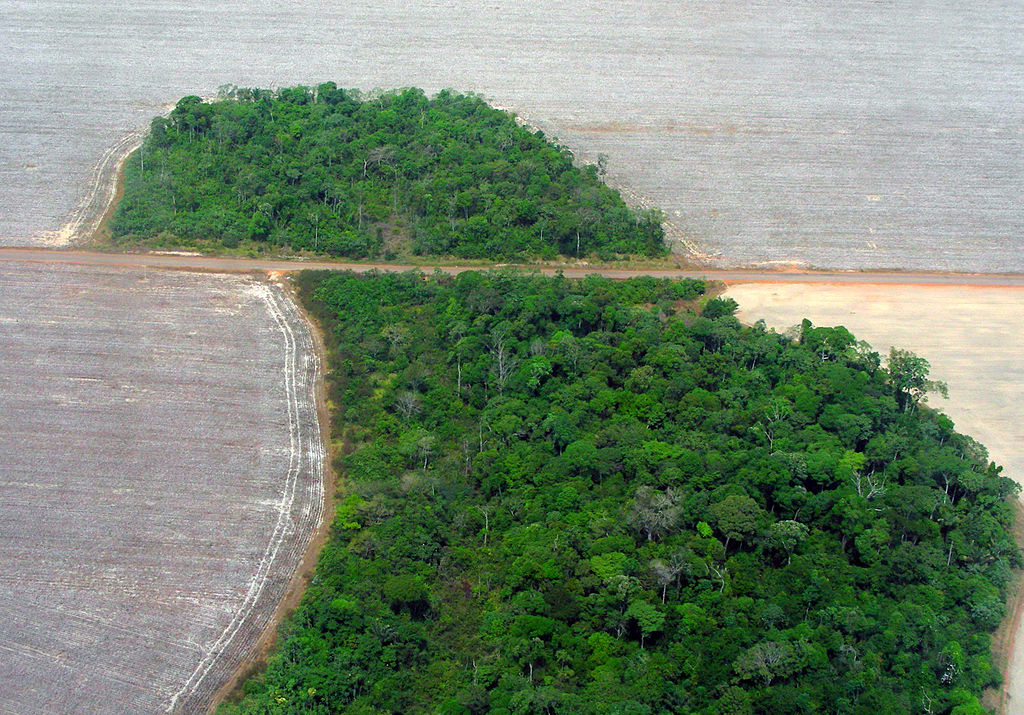Breaking: Civil society denounce leaked joint instrument on EU-Mercosur deal as blatant greenwashing
All the versions of this article: [English] [français]
22 March 2023
Breaking: Civil society denounce leaked joint instrument on EU-Mercosur deal as blatant greenwashing
by Friends of the Earth Europe, Ecologistas en Acción, European Coordination Via Campesina (ECVC), Collectif national Stop CETA-Mercosur, Aitec, PowerShift e.V. Germany, Handel Anders.
Brussels, 22 March 2023 – Documents leaked [1] from a confidential source reveal that the EU-Mercosur deal’s proposed annex, supposedly intended to safeguard the environment, climate and human rights, does nothing to achieve this. The annex exposes a dangerous gap between the European Union’s climate goals and commitments to protect human rights, and what it actually endorses behind closed doors.
Audrey Changoe of Friends of the Earth Europe said
“Rather than offering genuine changes as the EU Commission claims it will, the proposed joint instrument only offers cosmetic, aspirational and unenforceable adjustments. There is no new measure included that will address issues of deforestation, climate change, human rights violations, or animal welfare. The EU-Mercosur deal still actively pushes South America further into ecological collapse, props up a destructive neo-colonial economic system and drives social inequalities.”
In the section on climate change, the instrument states that country governments must stick to their Nationally Determined Contributions’ that were set in June 2019. But at the same time, the deal proposes to increase the very activities driving up greenhouse gas emissions in Brazil: agriculture is one of the key drivers of deforestation and greenhouse gas emissions in the country. [2][3][4] However, the joint instrument doesn’t include any measures that will help to address this.
On forests, the annex says ‘the EU and Mercosur will set an interim target of reduction of deforestation of at least 50% from current levels by 2025.’ However, EU imports from the Mercosur region of products like soy and poultry which drive deforestation are rising [5], and the deal will increase these exports further [6][7].
The instrument also claims to include civil society and indigenous communities as key stakeholders in deal negotiations and to value democratic participation. But indigenous peoples, small-scale farmers and civil society have been sidelined since the start of negotiations and were never part of any decision-making processes. The deal actually weakens protection of indigenous rights [8], and this very annex was negotiated in secrecy and discovered through a leak. Meanwhile, corporate lobbyists from the polluting automotive industry and big agribusiness with a track record in human rights violations and environmental push backs were given a seat at the table by the EU [9].
Morgan Ody, farmer in France and General Coordinator of the largest worldwide peasant farmers movement La Via Campesina said
“This FTA is based on an obsolete paradigm which disregards human rights, the climate and biodiversity crises, food sovereignty and the rights of food producers to a fair income. There is no way such a joint instrument will make this kind of agreement acceptable for farmers on both continents. We are ready to mobilise en masse across Europe to stop this agreement.”
In sum: The joint instrument is just another half-ditched cynical attempt to push through a fundamentally destructive deal that at its core, seeks to boost the export of commodities that drive deforestation, greenhouse gas emissions, human rights violations and push the Amazon and other crucial biomes further past the point of no return.
We as civil society reject this greenwashed attempt and call for governments to finally drop the EU-Mercosur trade agreement.
****
Notes
[1] https://www.bilaterals.org/?eu-mercosur-fta-joint-instrument
[2] Friends of the Earth Europe, Mercosur Files, 2023. https://friendsoftheearth.eu/wp-content/uploads/2023/02/FoEE_FACTSHEET_fev23_MERCOSUR.pdf. Deforestation in the Amazon in 2021 accounts for 77% of the land use changes in this time period, which is largely driven by agriculture. Agriculture also reached its highest emissions level in the same timeframe. In 2021, 25% of CO2 emissions were linked to the agricultural sector.
[3] Climate Action Tracker https://climateactiontracker.org/countries/brazil/targets/. In 2021, Brazil’s greenhouse gas emissions saw their highest increase in almost two decades, at 12.2%, putting them far short of the Paris Agreement goals.
[4] The Greenhouse Gas Emission and Removal Estimating System (SEEG). “Emissões do Brasil têm maior alta em 19 anos”, 1 November 2022. https://seeg.eco.br/imprensa. Almost half of Brazil’s emissions are the result of land use changes and forestry activities
[5] Eurogroup for Animals. Trade in animal products fuels deforestation. 3 June 2022. https://www.eurogroupforanimals.org/library/trade-animal-products-fuels-deforestation
[6] F. Pendrill, U.M. Persson, J. Godar, T. Kastner. Deforestation displaced: trade in forest-risk commodities and the prospects for a global forest transition. 2019. Annually, the EU imports commodities from Mercosur countries with a deforestation footprint of 120,000 hectares. Soy alone – one of the key products set for more exports in the EU-Mercosur deal – is responsible for 31% of the deforestation imported into the EU.
[7] Poultry World, ‘Surrounded by avian influenza, Brazil ups poultry exports.’ 21 March 2023. https://www.poultryworld.net/health-nutrition/health/surrounded-by-avian-influenza-brazil-ups-poultry-exports/
[8] The deal does not fully adopt the UN declaration on the Rights of Indigenous core principle of ‘free, prior and informed consent’ (FPIC), reducing it to prior informed consent. There is also no mention of how communities can bring complaints through compliance review and dispute settlements processes.
[9] PowerShift. Mobilitätswende ausgebremst. Das EU-Mercosur Abkommen und die Autoindustrie. 2 June 2022. https://power-shift.de/studie-eu-mercosur-abkommen-autoindustrie/






